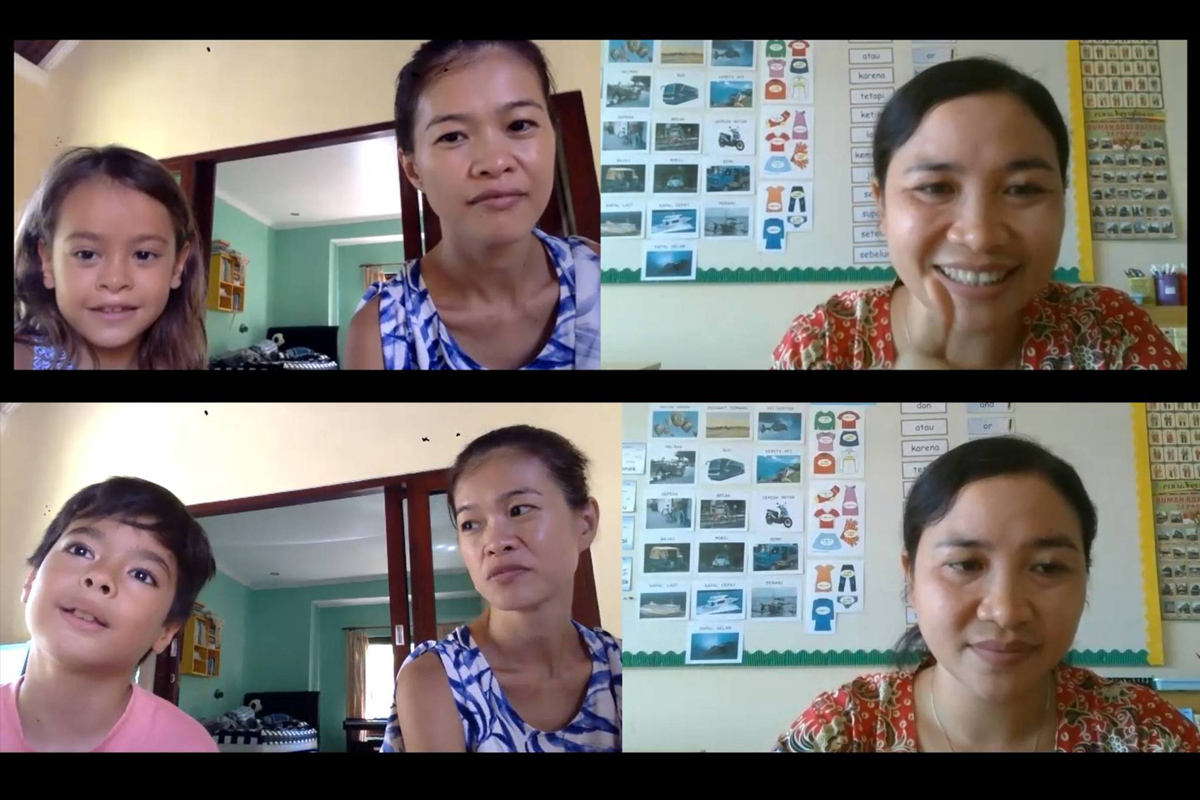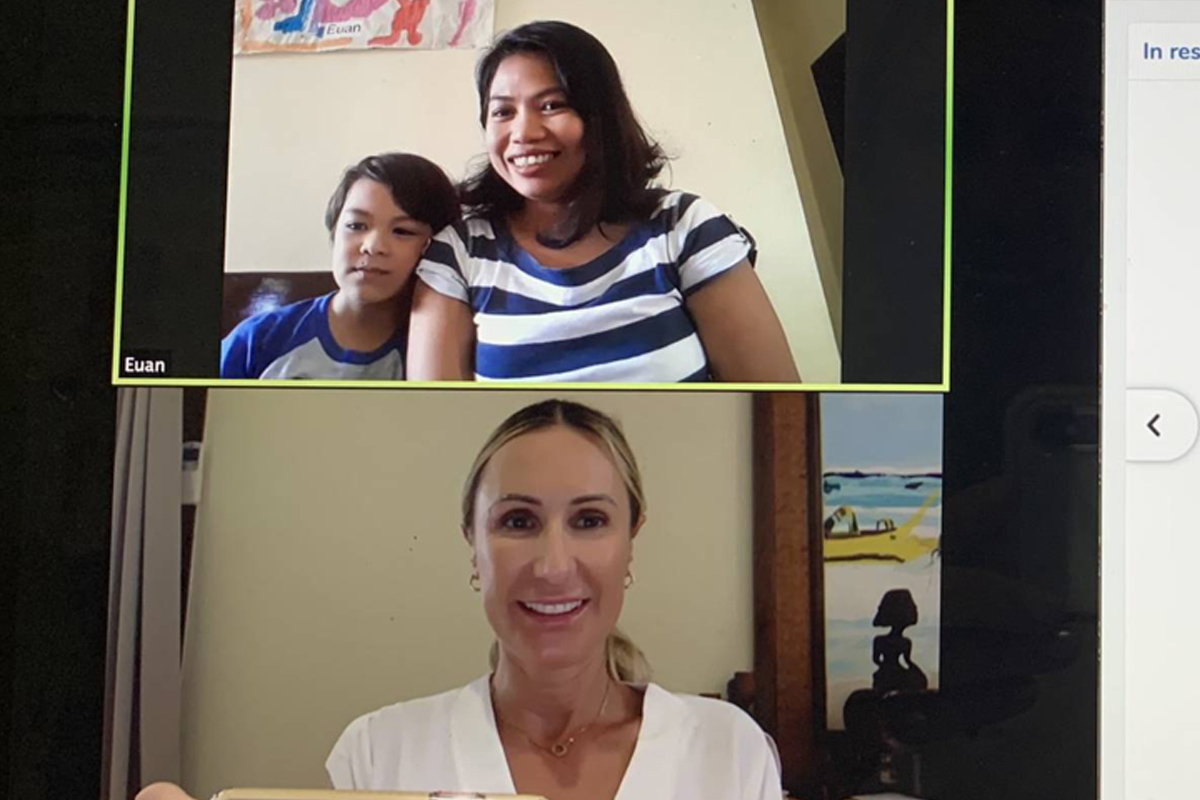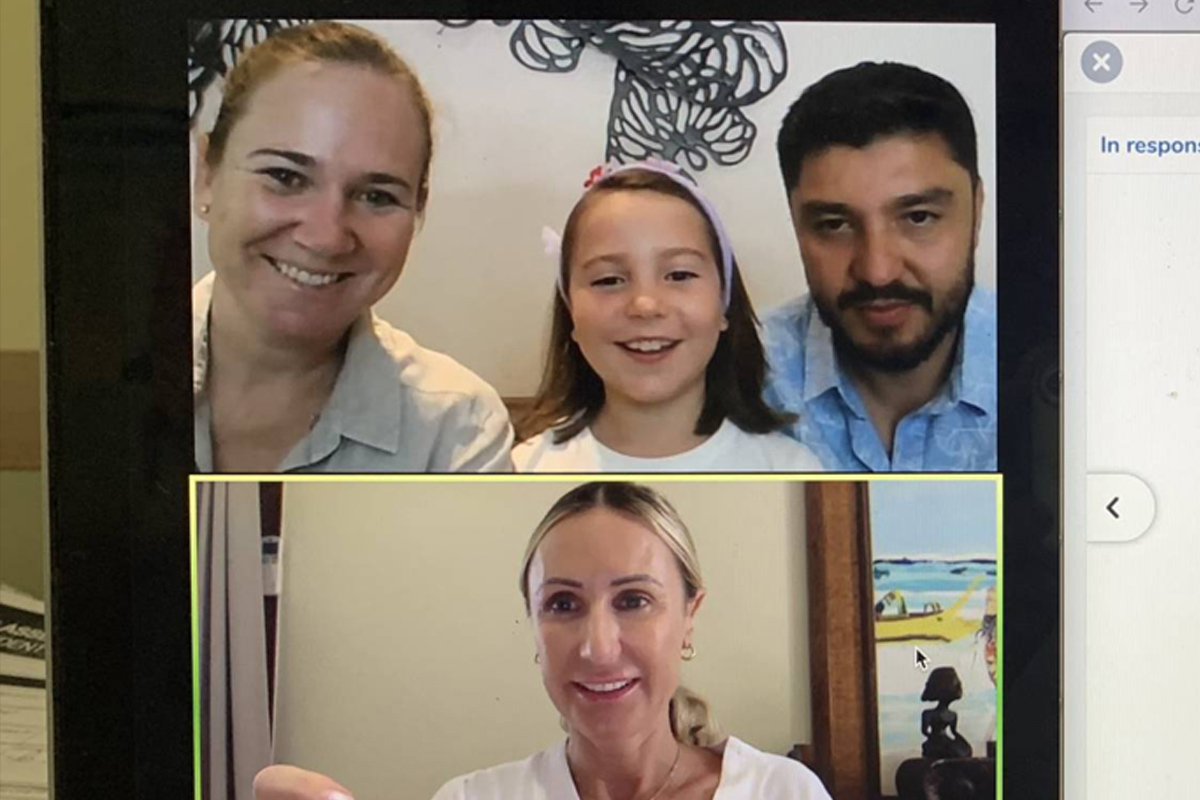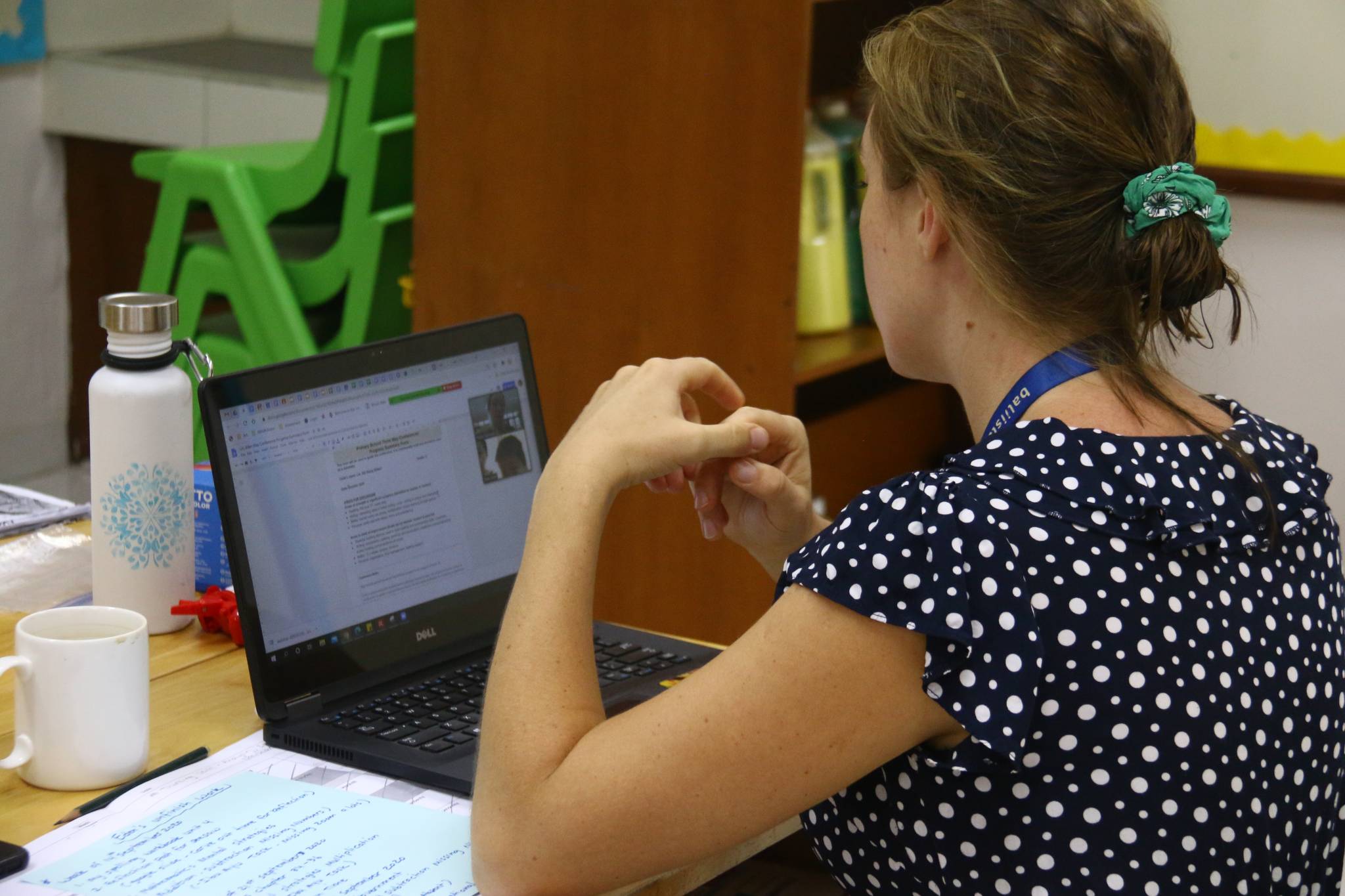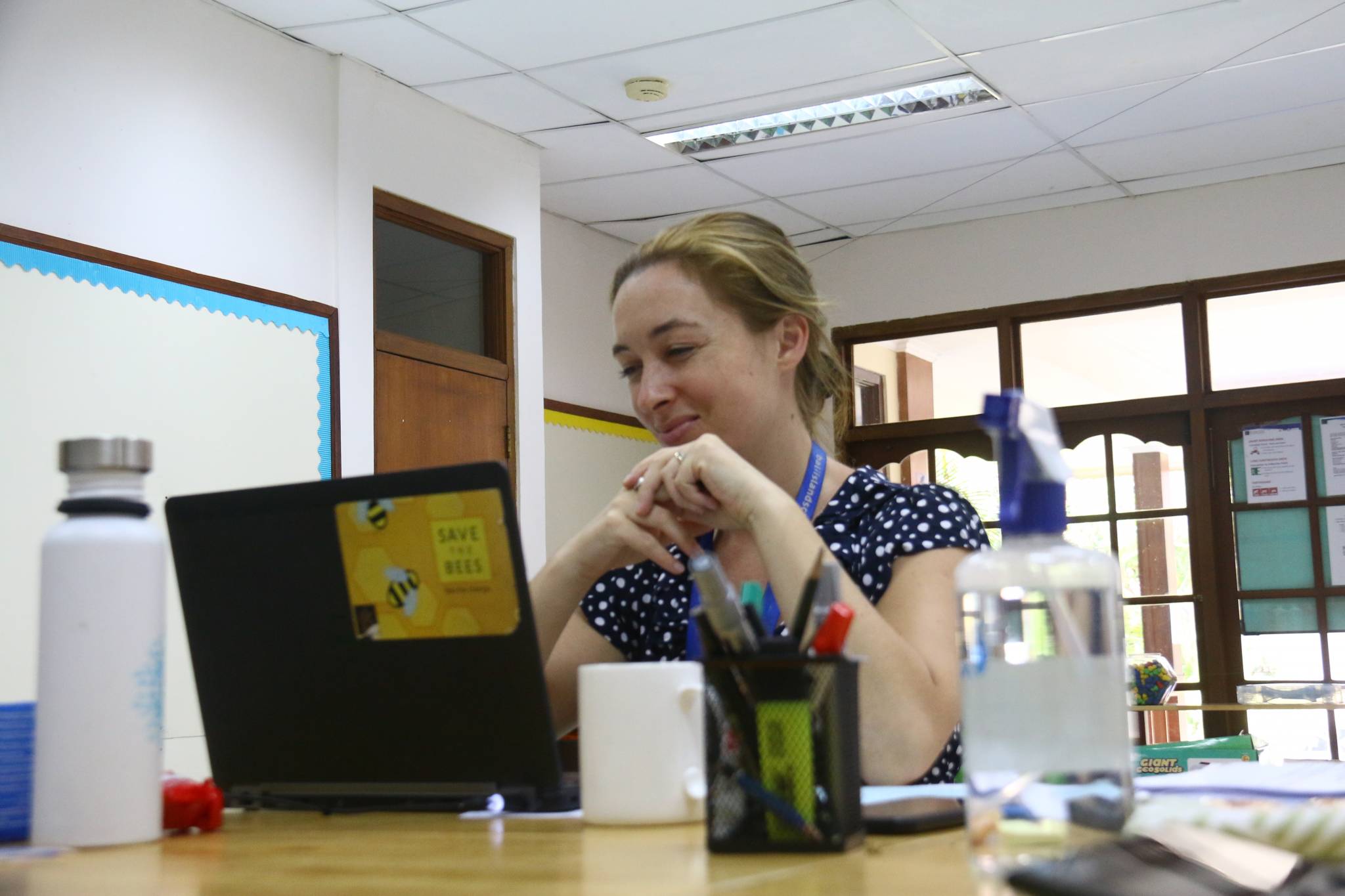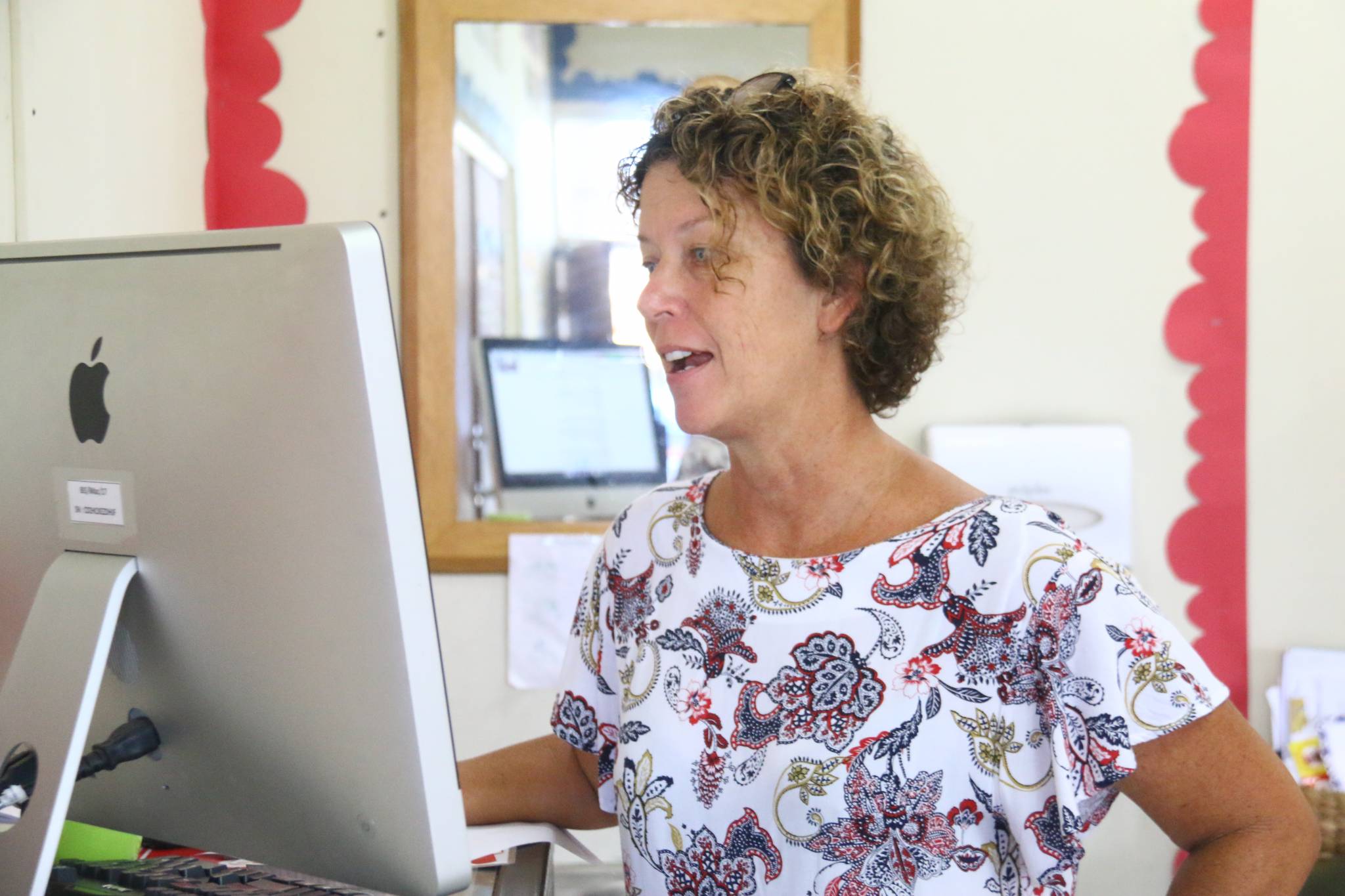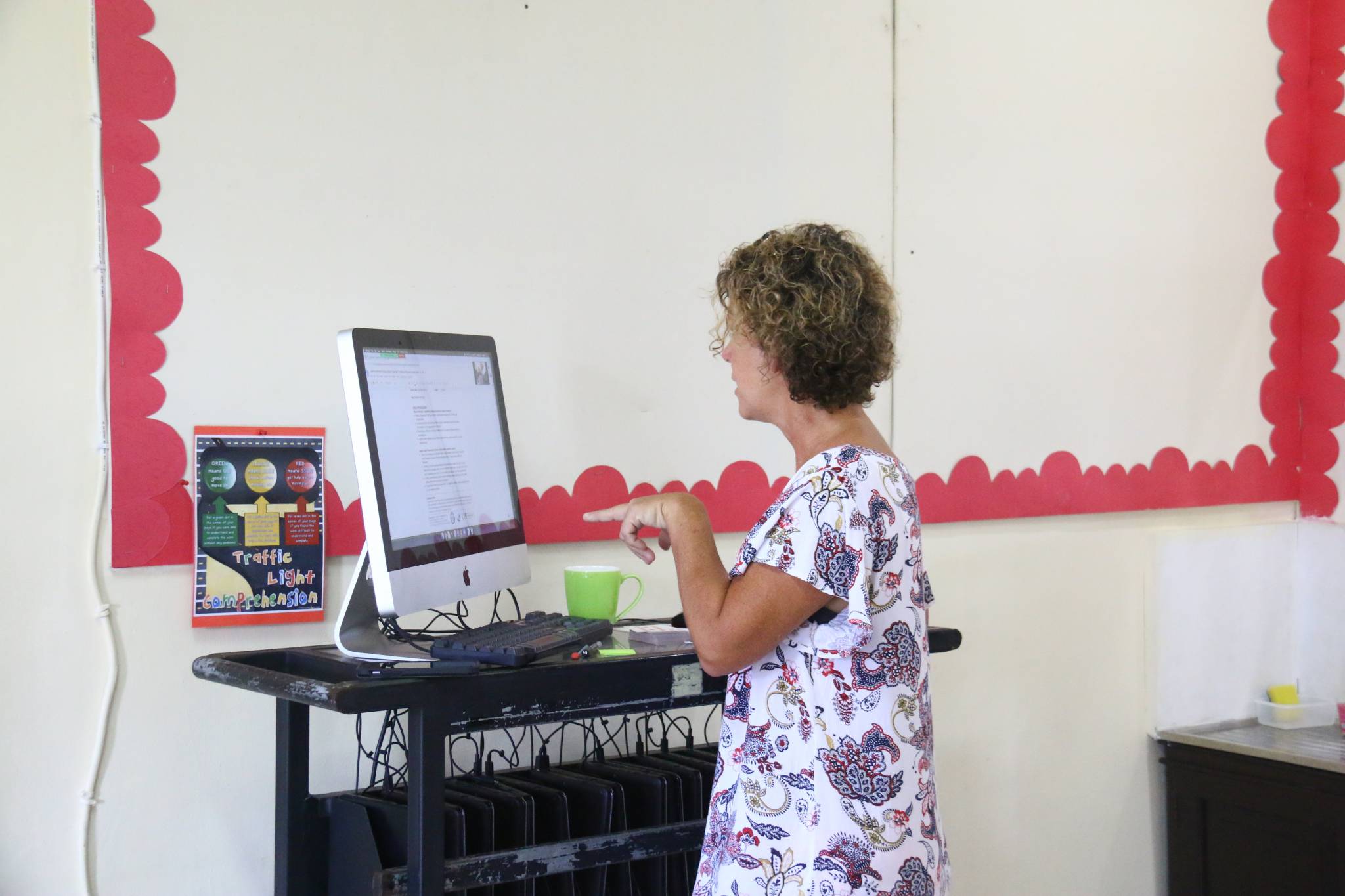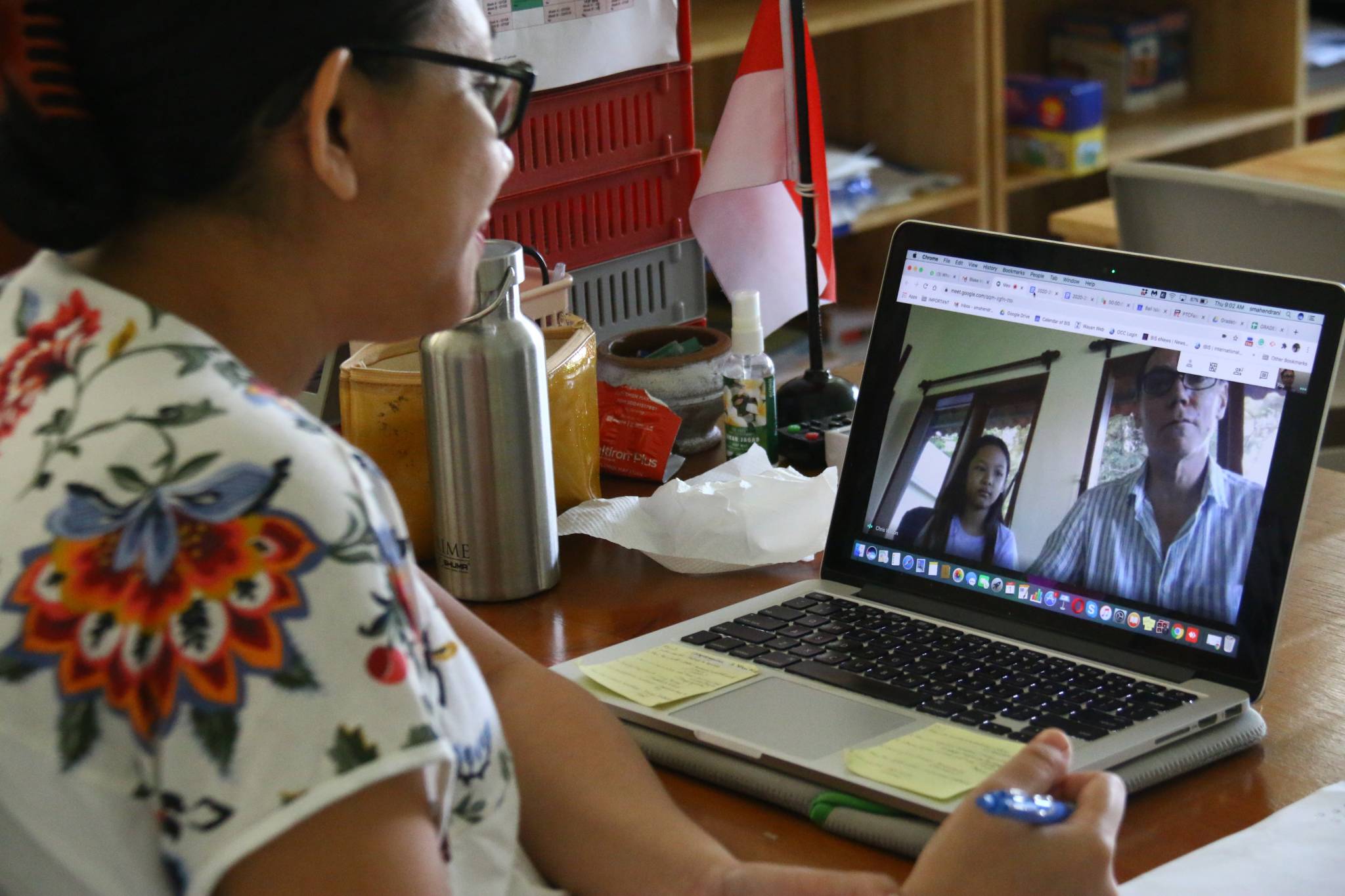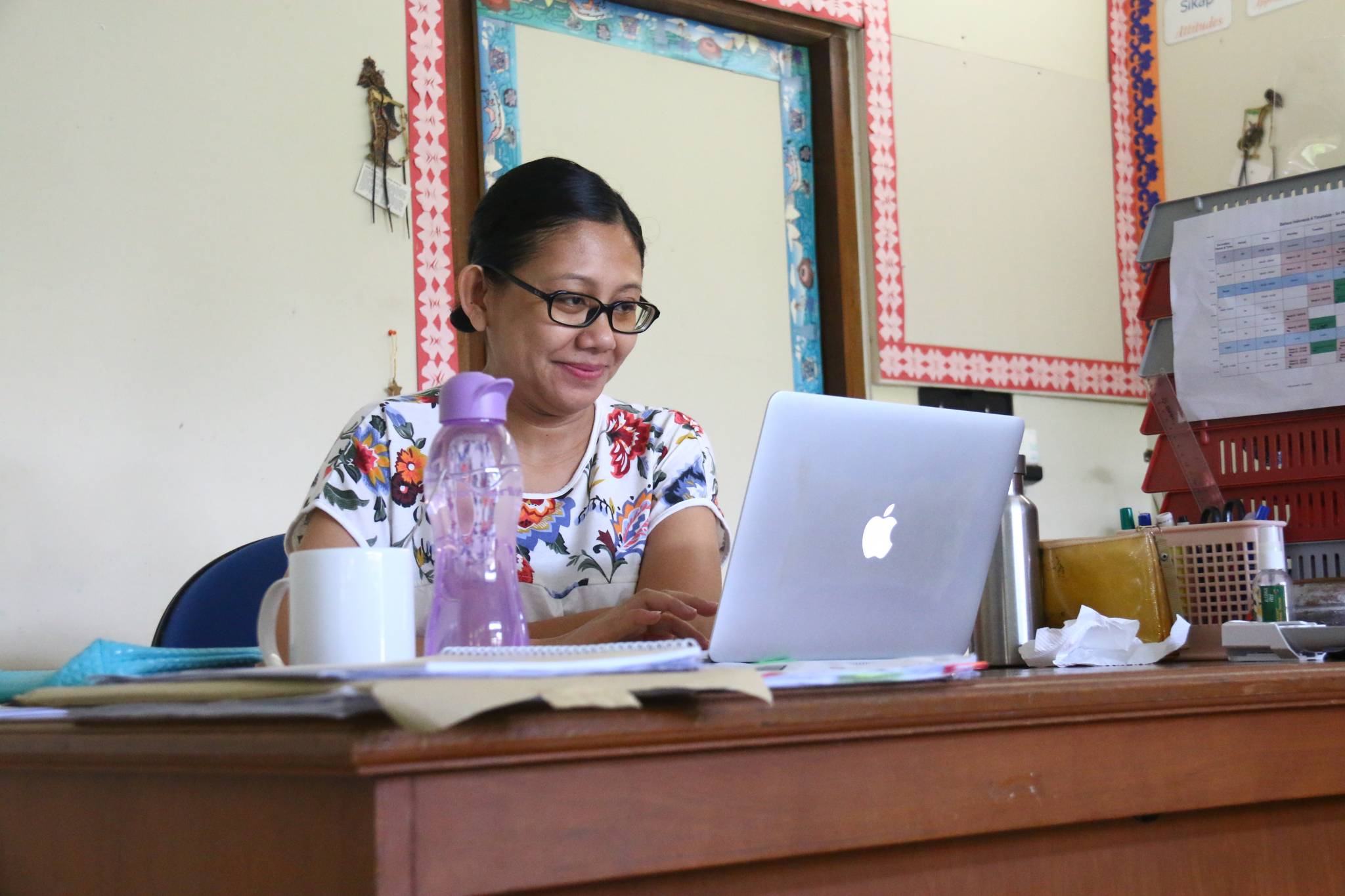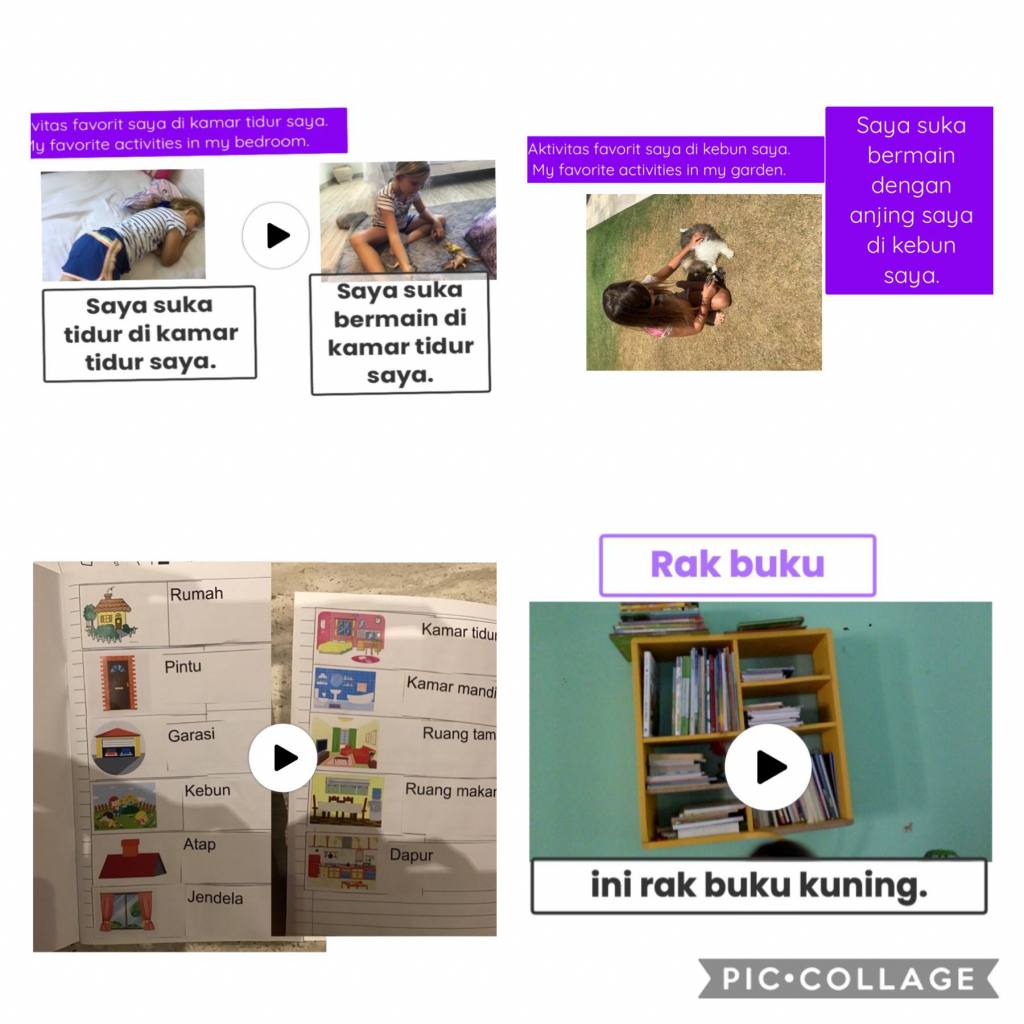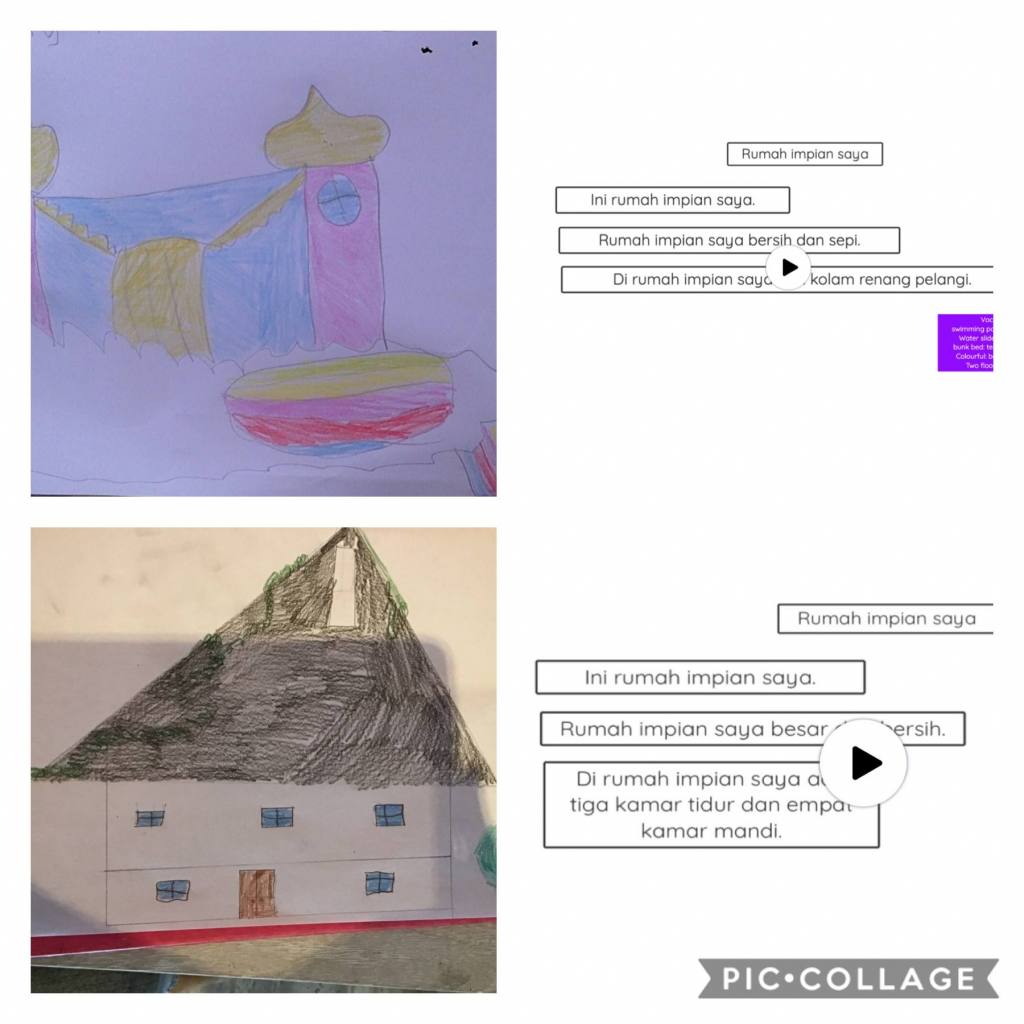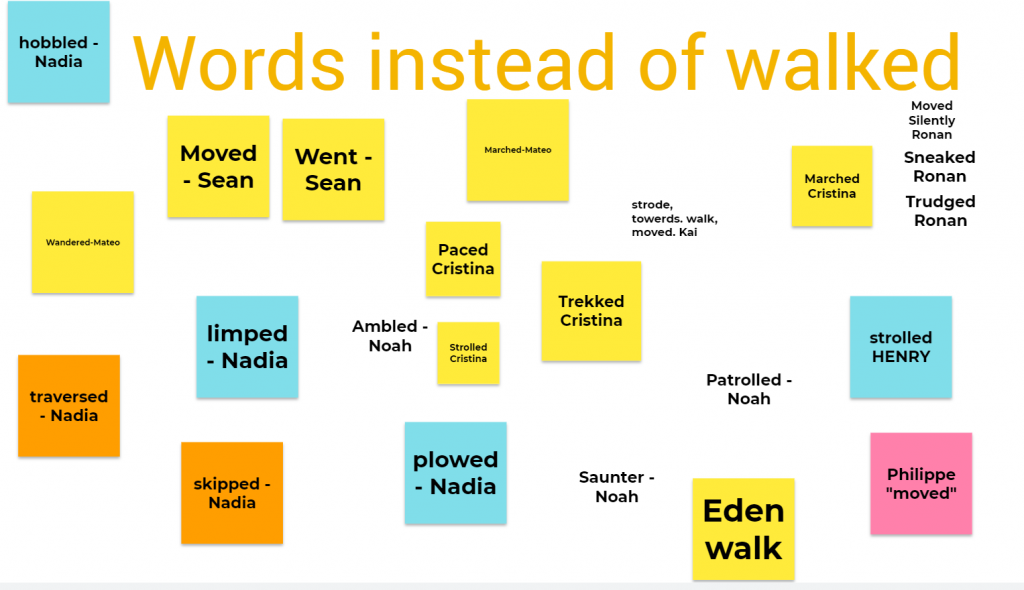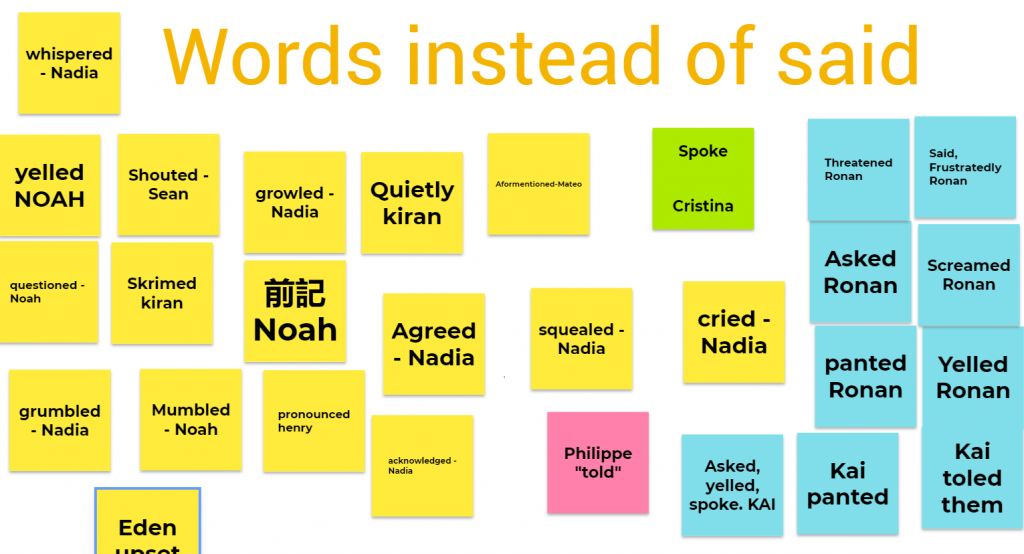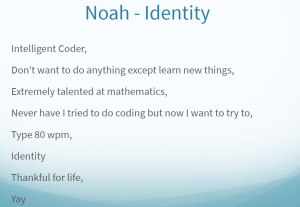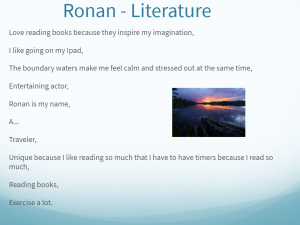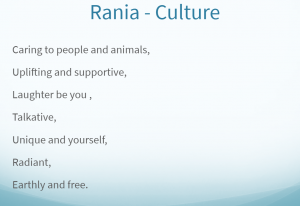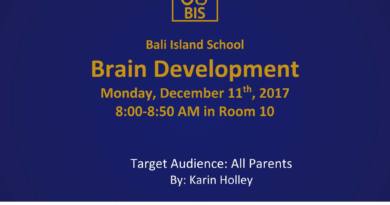Primary eNews – October 2, 2020
Three Way Conferences
Thank you to all parents and students who participated in our three way conferences this week. Students were empowered to discuss their learning and understanding with their parents and teachers, allowing for personal responsibility of their learning while being supported. Students, parents and teachers collaborated to identify strengths and areas for improvement.
Grade 2 Indonesian B – Home, Values and Culture
As part of the Who We Are unit, Grade 2 Indonesian B students have been inquiring into the different rooms in the house. Students demonstrate their knowledge and understanding of vocabulary and simple grammatical structure related to parts of the house, rooms in the house, and activities in the house.
In a related activity, students walked around their house and identified the colour of their house in Indonesian. Specific vocabulary related to this topic was introduced using word and picture flashcards. Students responded to a range of See Saw activities to improve their language skills. During a Zoom meeting, students strengthened their communication skills by listening and responding to simple questions.
At the end of the unit, students drew their dream house and wrote two or three sentences about their dream house. Here are some examples of students’ work.
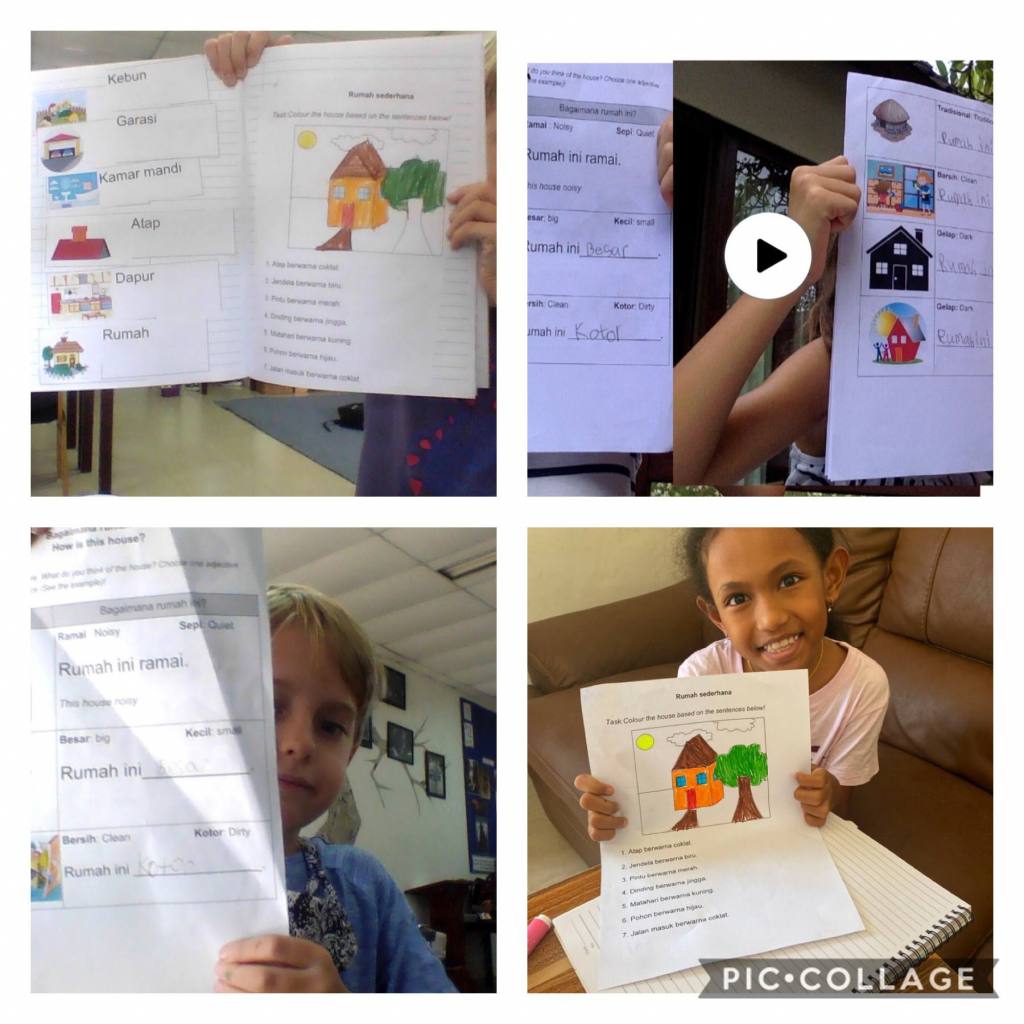
Grade 5 Writers in Action
Writing is a way of expressing ourselves. It is a personal act that grows and develops with the individual. When children are encouraged to express themselves and reveal their own “voice”, writing is a genuine expression of the individual. (Taken from the BIS Language Continuum)
In Grade 5, students have been exploring a variety of genres in writing this term connected with the theme of How We Express Ourselves. Here are a few examples of what writing looks like in our distance learning programme.
As part of a mini lesson on word choice, students used a programme called Jamboard to brainstorm better choices for overused words in their writing.
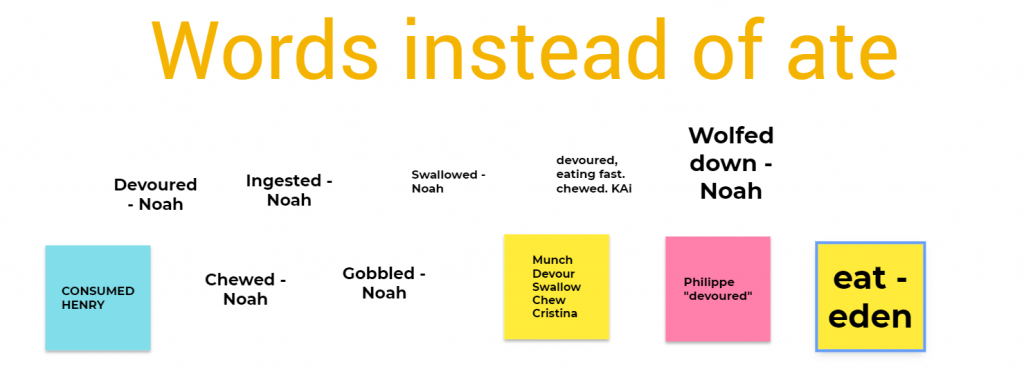
To further develop their word choice, students built their figurative language by creating acrostic poems including alliteration, metaphors and similes.
Students have also used choice boards to write daily, where they can apply their new skills learned in mini lessons.
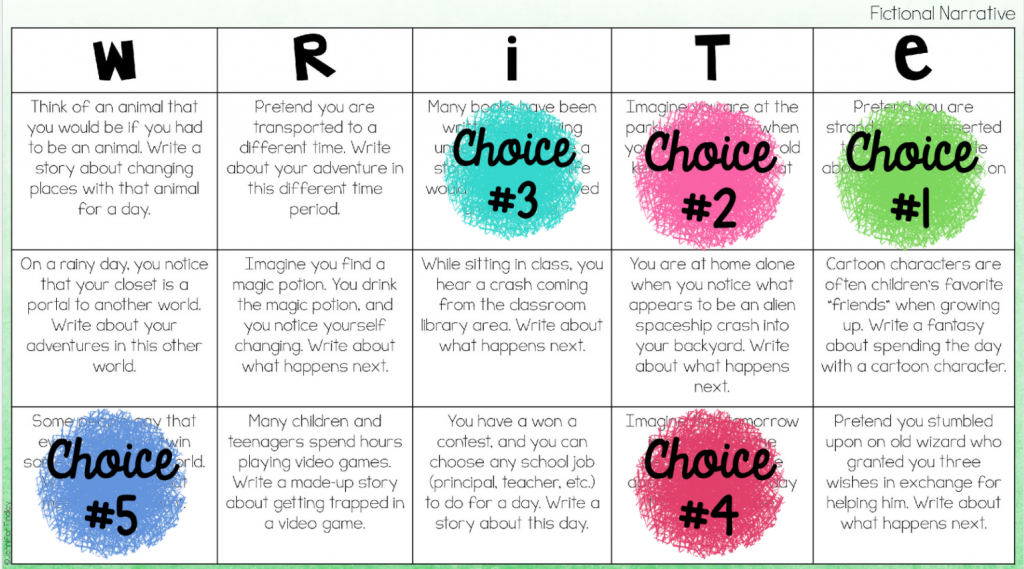
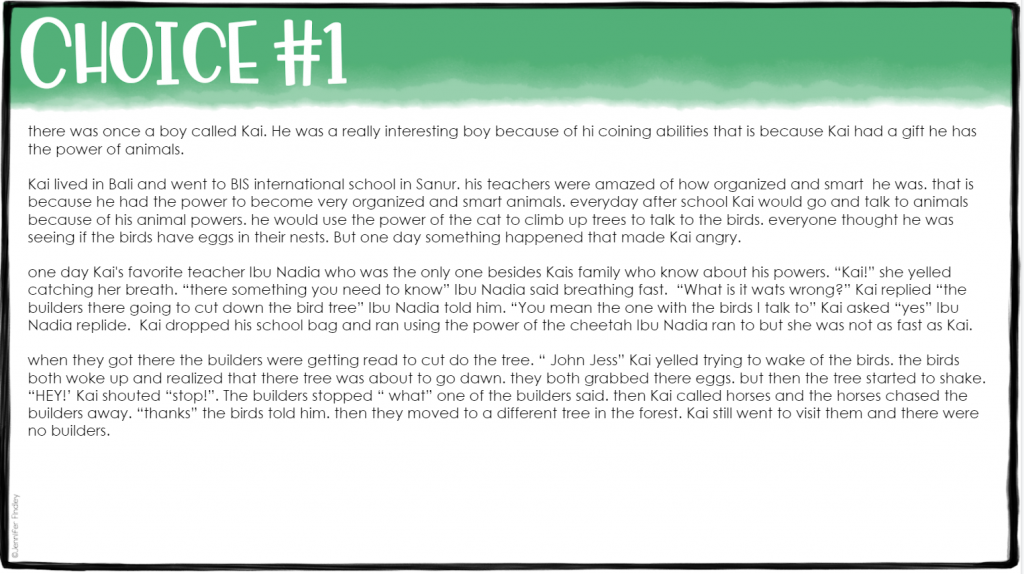
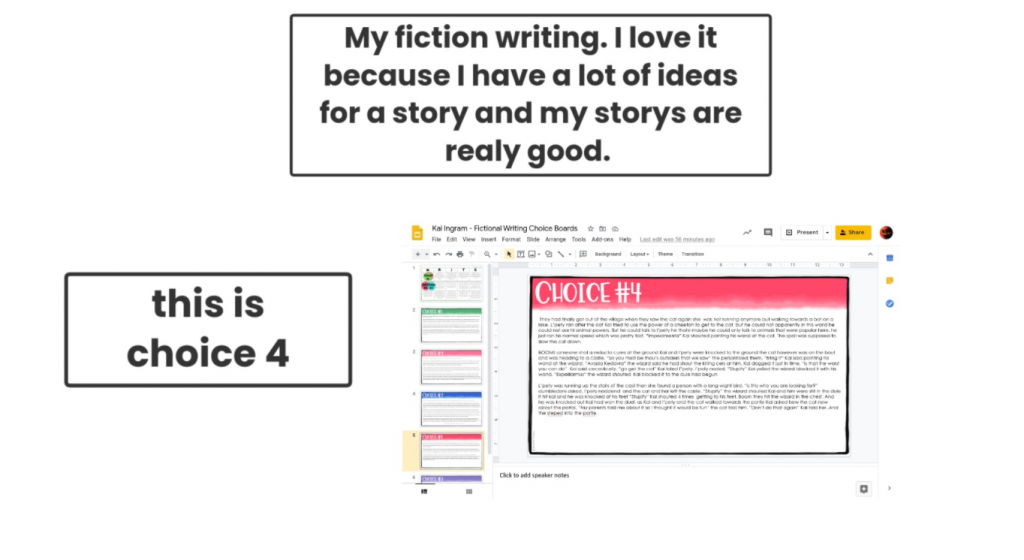
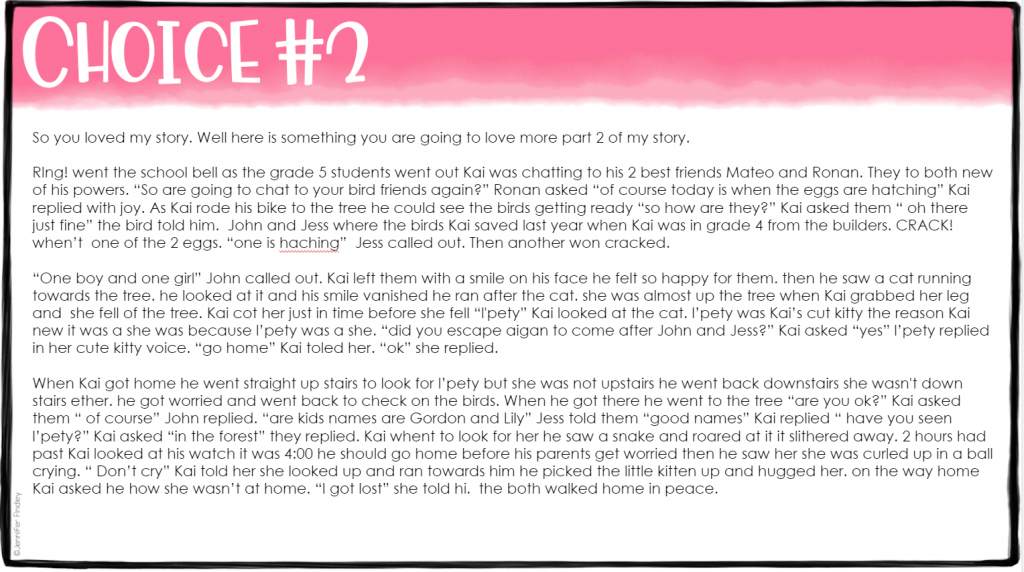
Counseling
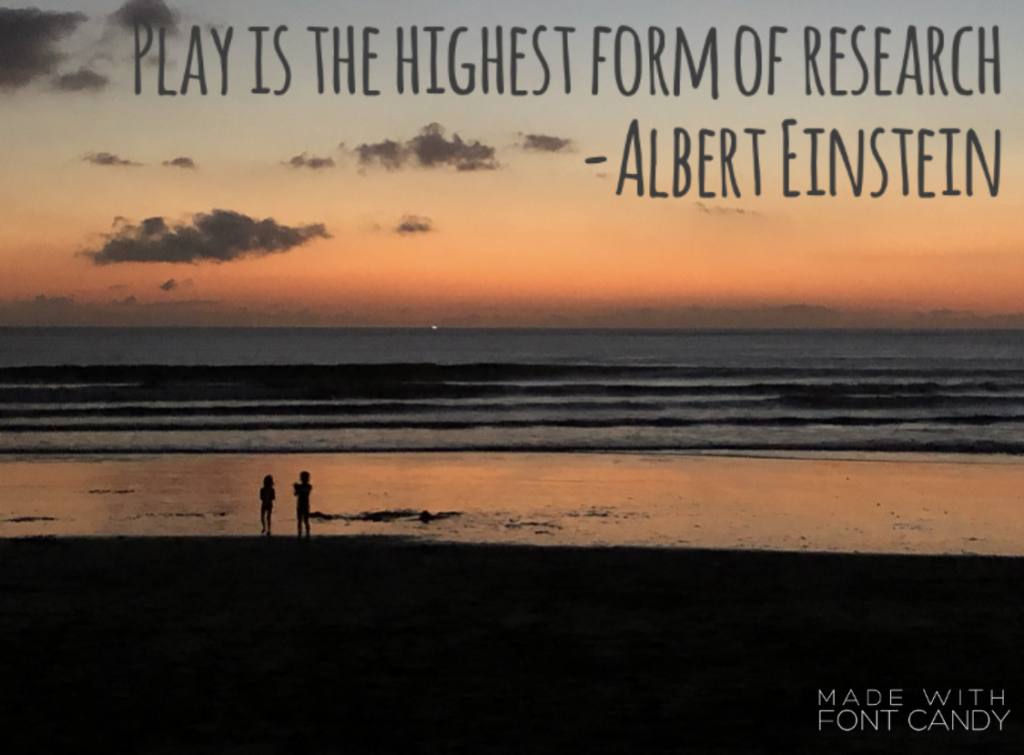
When we appreciate the important role play serves in a child’s learning about self and world, we give children the time and opportunity to engage in the self-initiated play that is the surest way for them to fully realize all of their intellectual, emotional, and social potential. —David Elkind, The Wisdom of Play: How Children Learn to Make Sense of the World
In 2018, Horatiu Catalano of Babes-Bolyai University wrote that play supports growth in memory, self-regulation, oral language, and symbols recognition. Children who play have easier adjustments at school, like when they change grade levels. Play helps them learn social rules and roles, and they see how to prioritize goals and actions. When they are with varied age levels, they engage with “play mentors” who open their eyes to exploration, safe risk-taking, and leadership.
As parents of young children, you likely hear about the importance of free play and play-based learning. This current time of being limited in extra-curricular activities provides a perfect opportunity to give children time to engage in unstructured play. These illustrations show you the various types of play children undertake. During the upcoming break, try to provide your children unstructured time to be imaginative. Most importantly, get off of devices and play as a family!


